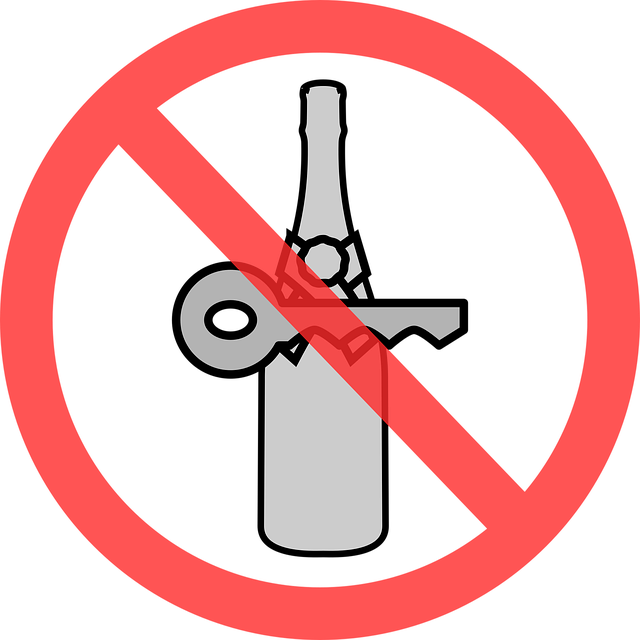Youth Justice and Fair Treatment prioritize rehabilitation over punishment for impaired driving among younger populations, especially those with disabilities. Tech solutions like advanced breathalyzer devices, apps, and ADAS contribute by providing real-time monitoring, data-driven decisions, and specialized support. These innovations enhance road safety, reduce accidents, and promote compassionate treatment tailored to young offenders' needs. Mobile apps, VR experiences, and online platforms raise awareness and empower youth to make responsible decisions, while parental control apps and ADAS deter drunk or distracted driving through real-time feedback. However, the ethical implications of AI-driven models must be carefully considered for vulnerable populations.
“In the global quest for youth justice and fair treatment, understanding and addressing impaired driving among young people is paramount. This article delves into these issues from a comprehensive viewpoint, exploring the impact of impaired driving on adolescents worldwide. We present compelling statistics and personal narratives that highlight the severity of the problem. Furthermore, we introduce tech solutions for alcohol and drug testing as innovative strategies to combat this challenge. Additionally, we discuss the role of technology in education and prevention efforts, while considering ethical implications and suggesting future directions for ensuring fairness in youth justice.”
- Understanding Youth Justice and Fair Treatment: A Global Perspective
- The Impact of Impaired Driving on Young People: Statistics and Stories
- Tech Solutions for Alcohol and Drug Testing: Innovation in Action
- Using Technology to Educate and Prevent Impaired Driving Among Youth
- Ethical Considerations and Future Directions: Ensuring Fairness Through Tech
Understanding Youth Justice and Fair Treatment: A Global Perspective

Youth Justice and Fair Treatment are universal concepts that gain even more significance in understanding the global impact of impaired driving, especially among younger demographics. In many countries, juvenile justice systems aim to rehabilitate and reintegrate young offenders, focusing on their potential for growth rather than merely punative measures. This approach recognizes that young people, particularly those with intellectual or developmental disabilities, may require specialized support and interventions.
From a global perspective, tech solutions for impaired driving play a pivotal role in promoting fair treatment. Innovative technologies offer new avenues for monitoring and managing juvenile offenders, ensuring their well-being and compliance with court orders. These tools can provide real-time data on behavior patterns, helping authorities make informed decisions and offering more effective alternatives to traditional punishment. By embracing such advancements, justice systems worldwide can enhance their ability to deliver just and compassionate treatment to young people, especially those at risk of impaired driving.
The Impact of Impaired Driving on Young People: Statistics and Stories

Impaired driving is a significant issue that disproportionately affects young people, with devastating consequences. According to recent statistics, teens and young adults are at a higher risk of being involved in motor vehicle crashes due to alcohol or drug use. These accidents not only result in injuries but also claim lives, leaving families and communities scarred. The impact extends beyond the immediate tragedy, affecting individuals’ future prospects and overall well-being.
The stories of those affected by impaired driving are a stark reminder of the need for change. Many young lives have been altered forever due to a momentary decision to drive under the influence. Tech solutions for impaired driving, such as advanced driver-assistance systems (ADAS) and innovative mobile apps, offer hope for prevention. These tools aim to promote responsible behavior by providing real-time data on blood alcohol levels and connecting individuals to support networks, ultimately contributing to safer youth justice and fair treatment on our roads.
Tech Solutions for Alcohol and Drug Testing: Innovation in Action

In recent years, technological advancements have revolutionized the way we approach issues related to youth justice and fair treatment, particularly in the context of impaired driving. Traditional methods of alcohol and drug testing often relied on manual processes, which could be time-consuming and prone to human error. However, modern tech solutions for impaired driving offer more efficient, accurate, and discreet alternatives. These innovations include advanced breathalyzer devices that provide instant results, portable field tests offering rapid analysis, and even innovative apps that facilitate the entire testing process.
By implementing these tech solutions for alcohol and drug testing, law enforcement agencies can ensure fairer and more consistent justice for young drivers. Automated systems reduce the potential for bias or misinterpretation, allowing for quicker decision-making processes during traffic stops. Furthermore, these technologies contribute to road safety by enabling officers to identify and address impaired driving more effectively, ultimately leading to a reduction in accidents and their devastating consequences.
Using Technology to Educate and Prevent Impaired Driving Among Youth

In today’s digital era, technology offers innovative solutions to address pressing issues among youth, such as impaired driving. By leveraging tech solutions for impaired driving, we can educate young individuals on the dangers and consequences of operating vehicles under the influence. Mobile apps designed to simulate real-life scenarios, virtual reality experiences that depict the impact of intoxication, and interactive online platforms that provide educational resources are powerful tools in this regard. These digital interventions not only raise awareness but also equip youth with the knowledge to make responsible decisions.
Furthermore, technology can help prevent impaired driving by enabling better monitoring and communication. Parental control apps, for instance, allow parents to track their teen’s location and receive alerts if suspicious activities are detected. Advanced driver-assistance systems (ADAS) in vehicles, such as automatic emergency braking and lane departure warnings, also play a crucial role in deterring drunk or distracted driving by providing real-time feedback and assistance.
Ethical Considerations and Future Directions: Ensuring Fairness Through Tech

In the pursuit of youth justice and fair treatment, technology offers both transformative potential and complex ethical dilemmas. As society increasingly relies on tech solutions for various aspects of life, including law enforcement and criminal justice systems, it’s imperative to explore their impact on vulnerable populations like youthful offenders. AI-driven predictive policing models, for instance, must be scrutinized for bias and accuracy to prevent wrongful targeting of marginalized communities.
Looking ahead, the future of youth justice may lie in innovative tech applications that facilitate restorative justice practices, personalized rehabilitation programs, and improved access to mental health resources. Tech solutions for impaired driving, for example, can contribute to road safety while offering opportunities for young offenders to take responsibility for their actions through virtual simulations and educational modules. Embracing these technological advancements ethically will be key to fostering a more equitable and effective youth justice system.
In conclusion, addressing impaired driving among youth requires a multi-faceted approach. By understanding global perspectives on youth justice and fair treatment, we can better grapple with the impact of this issue on young people’s lives. Integrating tech solutions for alcohol and drug testing offers innovative ways to prevent impaired driving. Furthermore, leveraging technology in education can foster awareness and deter risky behaviors. As we move forward, ethical considerations are paramount to ensure that technological advancements promote fairness and equity without perpetuating biases or infringing on privacy rights. Ultimately, Tech Solutions for Impaired Driving hold promise in creating a safer and more just future for young individuals globally.






